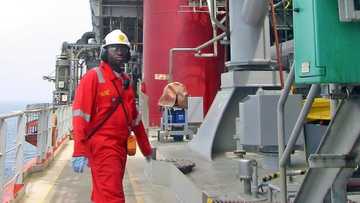Experts Reveal Benefits of Mobile Virtual Network Operators to Nigeria's Telecom Industry
- The decision by the Nigerian Communications Commission (NCC) to license Mobile Virtual Network Operators (MVNOs) has been hailed by experts
- According to them, the move will open up opportunities never-before-seen in the telecom space
- Andriy Zhylenko, CEO of PortaOne, said the move would see many of these MVNOs in direct competition with each other.
PAY ATTENTION: Сheck out news that is picked exactly for YOU ➡️ click on “Recommended for you” and enjoy!
A move in June 2023 by the Nigerian Communications Commission to open up licensing for independent Mobile Virtual Network Operators (MVNOs) has the potential to spark a rush of digital innovation, industry observers are saying.
And as this "great Nigerian MVNO race" becomes a one-of-a-kind laboratory for creating innovative mobile communications products and infrastructure models, businesses worldwide are watching closely to learn what the market will adopt and where they should invest their development budgets in the coming years.

Source: UGC
A never-before-seen opportunity for industry analysis
While MVNOs have been a big part of the international telecommunications industry for decades – the first MVNO model was launched by Virgin Mobile UK in 1999.
PAY ATTENTION: Сheck out news that is picked exactly for YOU ➡️ find the “Recommended for you” block on the home page and enjoy!
Observers believe the new licensing framework in Nigeria is creating a unique competitive environment that will help industry analysts better assess what business and marketing approaches will be most effective in the modern age of mobile communications, the Internet of Things, and Artificial Intelligence.
Up to this point, most MVNOs – which lease access to network infrastructure from a traditional Mobile Network Operator (MNO) - typically large, incumbent businesses such as MTN or Airtel), rather than building that infrastructure themselves – have primarily operated as a subsidiary of an incumbent MNO or as part of a franchise.

Read also
"They don't follow rules": Expert highlights why local oil and gas companies in Nigeria fold up
That has made it nearly impossible for analysts to assess the relative success of their business and technology models, as their operating environments are typically indistinct.
Now, this Nigerian-made "experiment" stands to shake things up. Not only is the local industry seeing the rapid launch of dozens of new, independent MVNOs - the licensing framework comprising five tiers- would ultimately see many of these MVNOs in direct competition with each other.
That would offer industry analysts an opportunity to understudy which aspects of the sales models and operational approaches adopted by these start-ups will lead to success – or failure.
"Because the business conditions will be the same, it will be easier to see the effect of different variables," says Andriy Zhylenko, CEO of PortaOne. This software company provides adaptable billing and operations platforms for communications, mobile, Internet of Things service providers, and many MVNOs.
Zhylenko further points out: "It's similar to a plant scientist suddenly being able to study the effect of different fertilizers on two seedlings that share the same DNA, rather than on two different kinds of plants."
NCC spotlights renewable energy on world consumer rights day
Legit.ng reported that the Nigerian Communications Commission (NCC) is billed to mark the 2023 World Consumer Rights Day (WCRD) in Abuja.
The event will commemorate its regulatory initiatives on clean energy usage in the telecoms sector.
The theme of the 2023 edition of the Day is “Empowering Consumers through Clean Energy Transitions.”
Source: Legit.ng




